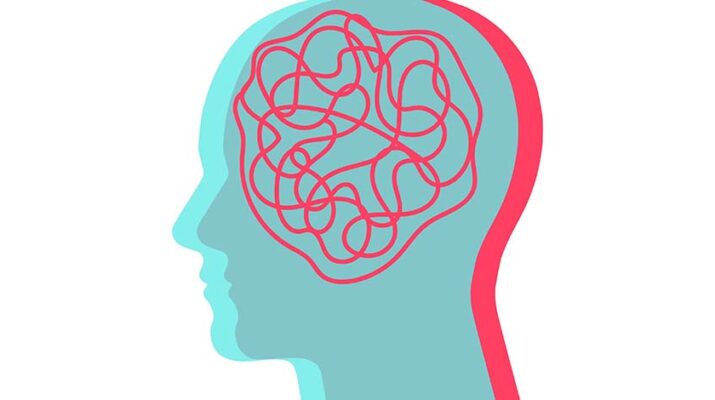Depression, anxiety, schizophrenia can shrink lives of people by 25 years
By Deborah Jeanne Sergeant
People with bipolar disorder or schizophrenia have “a substantially reduced life expectancy compared with the general population,” according to a study published by the National Institutes of Health. As many as 25 potential years could be lost compared with someone without a disorder.
Further studies link depression and anxiety to shorter lifespan and not only because of raised risk of death by suicide. Although risk of suicide increases with depression and is a very important issue, that risk is statistically minimal compared with other risk factors for decreasing longevity.
Mental health’s effect on longevity stems from multiple issues. If a friend or a relative shows symptoms of a mental condition, this psychiatrist near me can greatly help you!
You may also want to help introduce them to a mental health counselor to get the mental health therapy or Depression treatment in Phoenix, AZ they need.
For personalized treatment plans, you can also visit psychiatrist phoenix.
Increased risk of substance use and alcohol abuse among people with untreated mental health issues can contribute to reduced lifespan. Some self-treat mental health with substances or alcohol instead of or in addition to seeking psychiatric counseling.
“Alcohol addiction is a significant contributor to liver and pancreatic diseases, ulcers and cancer,” said physician George S. Nasra, professor of clinical psychiatry at University of Rochester Medical Center and chief of psychiatry division of collaborative care and wellness.
Are you struggling with addiction and ready to take your first steps toward recovery? Then you can check out this good alcohol detox and treatment services to ensure that you can get the full treatment you need to heal!
People not receiving needed mental healthcare are less likely to perform vital self-care such as eating a balanced diet, engaging in physical activity regularly and monitoring chronic physical health issues. Brain health is one of the most important (and often neglected) areas of health. Visit Brain Reference or WebMD to start taking brain health seriously.
“The majority of the premature deaths in people with mental illness are thought to be caused by chronic diseases such as cardiovascular, respiratory and infectious diseases, diabetes and hypertension,” Nasra said.
Many of these outcomes stem from lack of self-care and preventive medicine. Untreated depression and other mental illnesses can leave people feeling unmotivated to take basic steps to improve their health or misguided on how to improve their health. If you know such person who’s experiencing the same struggles with their health, this weblink might be your thorough approach.
Nasra said people with chronic psychotic disorders such as schizophrenia “have significantly poor access to good medical care, engage in unhealthy lifestyles—diet, exercise and smoking—and are exposed to medications with metabolic side effects which increase the risk of obesity, hyperlipidemia and diabetes.”
He added that the effect of a mood disorder on longevity as more harmful as smoking, yet mental health receives far less attention than tobacco use relating to physical health.
While these factors seem logical in reducing longevity, it is still unknown why mental health appears to negatively affect the immune system.
Nasra wants to see improved access to quality healthcare for both physical and mental health.
“Addressing stigma and treating mental illnesses on par with physical illnesses are also important factors in reducing this longevity gap,” Nasra said.
The Paul Wellstone and Pete Domenici Mental Health Parity and Addiction Equity Act passed in 2008 ensures equal insurance coverage for mental health and physical health issues. However, Nasra said that many times, stigma still attaches a lower level of importance to mental health as viewed by payers, providers and patients.
“One way to address the stigma of mental health and improve access is through the integration of behavioral and physical health care which would provide a more holistic approach and reduce some of the barriers for access,” Nasra said.
Kelly Herron is a board-certified OB-GYN and board-certified internal medical physician certified in integrative and functional medicine. She operates Hygeia Life in Rochester.
She encourages people to work on mitigating stress, improving quality and quantity of sleep and physical activity.
“Exercise is really important,” Herron said. “A lot of research says it improves mood, brain function, helps prevent dementia. It’s really important to have regular exercise and to find something you enjoy so you’ll want to keep doing it.”
Jess Germano-Fokin, Ph.D., and owner of Seasons of Change Wellness in Rochester, is also a big believer in exercise. She tells her patients that “movement is medicine. It’s healing. If we lose that movement, our brains and bodies start to deplete. Atrophy starts to set in, which can have a huge impact on longevity.”
She added that movement releases the body’s natural “feel good” hormones that help improve mood.
Germano-Fokin promotes the integrative model of wellbeing for mental and physical health, along with healthy relationships. A disruption in one often leads to disruption in another. Of course, medication for physical and mental health may be needed; however, “lifestyle changes can be very powerful,” she said. “Someone may think they need to go on anti-anxiety or antidepressants, but you can stabilize and manage and maintain without medication sometimes.”

